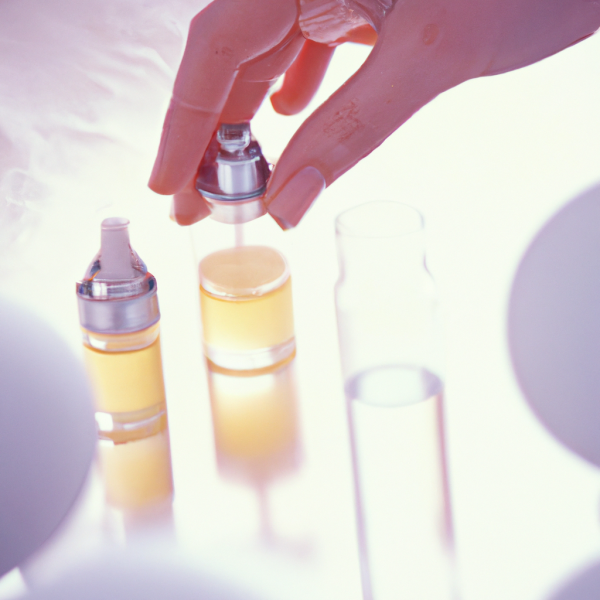Exploring the Purposes of Skincare Clinical Trials
When launching a new premium skincare product, many companies rely on clinical trials to ensure the safety and effectiveness of their product. These clinical tests are designed to provide evidence regarding the product’s safety and efficacy, before it is released onto the market. This article will review the various types of trials and explain why clinical trials are essential for luxury skincare companies.
Why Are Skincare Clinical Trials Crucial?
To protect consumers, companies are legally obligated to conduct clinical trials before releasing a new product line. In addition to regulatory requirements, clinical trials are beneficial because they provide research and data that a company can use to generate customer interest and promote the new product. Skincare clinical trials can also be used to assess the safety and efficacy of the product line, and highlight any potential adverse reactions or reactions in certain skin types. Lastly, clinical trials are important because they allow skincare companies to gain a better understanding of their target market and customer needs.
Types of Clinical Trials
Clinical trials are typically divided into four categories:
1. Observational Trials
Observational trials are designed to measure the outcomes from giving a product to a group of people who already have an existing condition, usually for a short period of time. Observational trials are also useful for comparing different skincare products with each other. Results from these trials can be used to determine the effectiveness and safety of the product under real-world conditions.
2. Interventional Trials
Interventional trials are conducted with one group of volunteers, who are randomized before the trial begins to compare the safety and efficacy of two or more different treatments. The primary purpose of these trials is to assess the treatments in controlled environments to determine which one is the most effective.
3. Non-Interventional Trials
Non-interventional trials compare different products using volunteers who have already received one or more treatments. In these trials, volunteers are monitored and tracked in order to assess the effectiveness of the product, and any side-effects that may occur.
4. Clinical Registry
Clinical registries are designed to facilitate long-term follow up of volunteers and allow companies to assess the safety and efficacy of their product over time. This type of trial is beneficial for luxury skincare companies, as it allows them to monitor the results of their product over the long-term, to ensure the safety and efficacy of the product.
FAQs
What are the benefits of conducting a clinical trial?
Clinical trials have numerous benefits, including helping to ensure the safety and effectiveness of a product, as well as providing data that can be used to generate consumer interest and promote the new product.
What are the different types of clinical trials?
The four types of clinical trials are observational, interventional, non-interventional, and clinical registry trials.
What is the purpose of observational trials?
Observational trials are designed to measure the outcomes from giving a product to a group of people who already have an existing condition, usually for a short period of time. They are used to compare different skincare products with each other, and to assess the safety and efficacy of the product line.
What is a non-interventional trial?
Non-interventional trials compare different products using volunteers who have already received one or more treatments. The primary purpose of these trials is to assess the safety and efficacy of the products without interference.
What is a clinical registry?
A clinical registry is designed to facilitate long-term follow up of volunteers and allow companies to assess the safety and efficacy of their product over time. Clinical registries are beneficial for luxury skincare companies, as it allows them to monitor the results of their product over the long-term.
The Necessity of Clinical Trials for Luxury Cosmetics Companies
Clinical trials are a vital step for luxury cosmetics companies when launching a new product. Not only are they required by law, but they also provide essential data and analysis that allows the company to measure the safety and efficacy of the product. Additionally, clinical trials can be beneficial for market research and provide further insight into consumer needs and preferences. By utilizing clinical trials, luxury cosmetics companies can provide safer and more reliable products to their customers, helping to ensure brand loyalty and increased profits.
Key Considerations for Designing Effective Clinical Trials
When it comes to optimizing clinical trials for cosmetic products, luxury cosmetics companies must carefully design and execute these trials to ensure accurate and reliable results. Here are some key considerations to keep in mind:
1. Define Clear Objectives
Before initiating a clinical trial, it is crucial to establish clear objectives. Identify what specific aspects of the cosmetic product you want to evaluate, such as its safety, efficacy, or potential side effects. By defining clear objectives, you can tailor the trial design and data collection methods accordingly.
2. Select an Appropriate Sample Size
Determining the appropriate sample size is essential for achieving statistically significant results. Consider factors such as the target market, the product’s anticipated impact, and the level of precision required. A larger sample size generally improves the reliability of the findings, but it’s important to strike a balance to avoid unnecessary costs and time delays.
3. Consider Diverse Demographics
To ensure the generalizability of the trial results, it is important to include participants from diverse demographics. Factors such as age, gender, ethnicity, and skin type can influence how individuals respond to cosmetic products. By including a representative sample, luxury cosmetics companies can better understand how their products perform across different populations.
4. Implement Randomization and Blinding
Randomization and blinding are crucial techniques in clinical trials to minimize bias and ensure objective results. Randomly assigning participants to different groups helps distribute potential confounding factors evenly. Blinding, whether single-blind or double-blind, prevents participants and researchers from knowing which treatment they are receiving, reducing bias and maximizing the validity of the findings.
5. Collect Comprehensive Data
To obtain a comprehensive understanding of the product’s performance, collect data on various parameters. These may include objective measurements such as skin hydration, elasticity, or wrinkle reduction, as well as subjective assessments through participant surveys or feedback. Comprehensive data collection provides a holistic view of the product’s effectiveness and allows for in-depth analysis.
6. Monitor and Assess Adverse Reactions
Vigilant monitoring of adverse reactions is crucial throughout the clinical trial process. Document any adverse events or side effects experienced by participants and analyze their frequency, severity, and relationship to the product. This information helps in identifying potential risks and developing appropriate safety measures or warnings for consumers.
7. Collaborate with Accredited Testing Facilities
To enhance the credibility and validity of clinical trial results, luxury cosmetics companies should collaborate with accredited testing facilities or research institutions. Partnering with recognized organizations ensures adherence to rigorous scientific standards, ethical guidelines, and regulatory requirements. It also enhances the transparency and trustworthiness of the trial outcomes.
By incorporating these key considerations into the design and execution of clinical trials, luxury cosmetics companies can gather robust evidence regarding the safety and efficacy of their products, while also gaining valuable insights into consumer preferences and market trends.
In summary, optimizing clinical trials for cosmetic products is crucial for luxury cosmetics companies. By defining clear objectives, selecting appropriate sample sizes, considering diverse demographics, implementing randomization and blinding, collecting comprehensive data, monitoring adverse reactions, and collaborating with accredited testing facilities, these companies can ensure the reliability and effectiveness of their clinical trials, resulting in safer and more appealing products for consumers.






